Little Brier-Rose by The Brother's Grimm
An Invitation To Share Your Understand Of Why This Story Has Been Kept Alive & Shared By Grandmothers and Grandfathers For So Long
As you saw in the last post, Kakisimo Iskwew and I are hosting a six-week exploration into the story of Briar Rose. So, we thought we’d share the story herself and get your reflections on it.
I think that one of the most worthy inquiries into folklore and mythology is to ask ourselves, “Why did our ancestors bother keep this story alive for so many generations? Why did they prize these stories so much?”
And so, we ask you that question.
Below you’ll find the Grimm’s version of the Sleeping Beauty story collected from Marie Hassenpflug (1788-1856).
In the comments below, we’d love to know what your thoughts are.
In past times, there were a king and a queen, who said every day, "Oh, if only we had a child!" but they never received one.
Then it happened one day while the queen was sitting in her bath, that a frog crept out of the water onto the ground and said to her, "Your wish shall be fulfilled, and before a year passes you will bring a daughter into the world."
What the frog said did happen, and the queen gave birth to a girl who was so beautiful that the king could not contain himself for joy, and he ordered a great celebration. He invited not only his relatives, friends, and acquaintances, but also the wise women so that they would be kindly disposed toward the child. There were thirteen of them in his kingdom, but because he had only twelve golden plates from which they were to eat, one of them had to remain at home.
The feast was celebrated with great splendor, and at its conclusion the wise women presented the child with their magic gifts. The one gave her virtue, the second one beauty, the third one wealth, and so on with everything that one could wish for on earth.
The eleventh one had just pronounced her blessing when the thirteenth one suddenly walked in. She wanted to avenge herself for not having been invited, and without greeting anyone or even looking at them she cried out with a loud voice, "In the princess's fifteenth year she shall prick herself with a spindle and fall over dead." And without saying another word she turned around and left the hall.
Everyone was horrified, and the twelfth wise woman, who had not yet offered her wish, stepped foreward. Because she was unable to undo the wicked wish, but only to soften it, she said, "It shall not be her death. The princess will only fall into a hundred-year deep sleep."
The king, wanting to rescue his dear child, issued an order that all spindles in the entire kingdom should be burned. The wise women's gifts were all fulfilled on the girl, for she was so beautiful, well behaved, friendly, and intelligent that everyone who saw her had to love her.
Now it happened that on the day when she turned fifteen years of age the king and the queen were not at home, and the girl was all alone in the castle. She walked around from one place to the next, looking into rooms and chambers as her heart desired. Finally she came to an old tower. She climbed up the narrow, winding stairs and arrived at a small door. In the lock there was a rusty key, and when she turned it the door sprang open. There in a small room sat an old woman with a spindle busily spinning her flax.
"Good day, old woman," said the princess. "What are you doing there?"
"I am spinning," said the old woman, nodding her head.
"What is that thing that is so merrily bouncing about?" asked the girl, taking hold of the spindle, for she too wanted to spin.
She had no sooner touched the spindle when the magic curse was fulfilled, and she pricked herself in the finger. The instant that she felt the prick she fell onto a bed that was standing there, and she lay there in a deep sleep. And this sleep spread throughout the entire castle. The king and queen, who had just returned home, walked into the hall and began falling asleep, and all of their attendants as well. The horses fell asleep in their stalls, the dogs in the courtyard, the pigeons on the roof, the flies on the walls, and even the fire on the hearth flickered, stopped moving, and fell asleep. The roast stopped sizzling. The cook, who was about to pull kitchen boy's hair for having done something wrong, let him loose and fell asleep. The wind stopped blowing, and outside the castle not a leaf was stirring in the trees.
Round about the castle a thorn hedge began to grow, and every year it became higher, until it finally surrounded and covered the entire castle. Finally nothing at all could be seen of it, not even the flag on the roof.
A legend circulated throughout the land about the beautiful sleeping Little Brier-Rose, for so the princess was called. Legends also told that from time to time princes came, wanting to force their way through the hedge into the castle. However, they did not succeed, for the thorns held firmly together, as though they had hands, and the young men became stuck in them, could not free themselves, and died miserably.
Many long, long years later, once again a prince came to the country. He heard an old man telling about the thorn hedge. It was said that there was a castle behind it, in which a beautiful princess named Little Brier-Rose had been asleep for a hundred years, and with her the king and the queen and all the royal attendants were sleeping. He also knew from his grandfather that many princes had come and tried to penetrate the thorn hedge, but they had become stuck in it and died a sorrowful death.
Then the young man said, "I am not afraid. I will go there and see the beautiful Little Brier-Rose."
However much the good old man tried to dissuade him, the prince would not listen to his words.
The hundred years had just passed, and the day had come when Little Brier-Rose was to awaken. When the prince approached the thorn hedge, it was nothing but large, beautiful flowers that separated by themselves, allowing him to pass through without harm, but then behind him closed back into a hedge.
In the courtyard he saw the horses and spotted hunting dogs lying there asleep, and on the roof the pigeons, perched with their little heads tucked under they wings. When he walked inside the flies were asleep on the wall, the cook in the kitchen was still holding up his hand as if he wanted to grab the boy, and the maid was sitting in front of the black chicken that was supposed to be plucked. He walked further and saw all the attendants lying asleep in the hall, and above them near the throne the king and the queen were lying. He walked on still further, and it was so quiet that he could hear his own breath. Finally he came to the tower and opened the door to the little room where Little Brier-Rose was sleeping.
There she lay and was so beautiful that he could not take his eyes off her. He bent over and gave her a kiss. When he touched her with the kiss Little Brier-Rose opened her eyes, awoke, and looked at him kindly.
They went downstairs together, and the king awoke, and the queen, and all the royal attendants, and they looked at one another in amazement. The horses in the courtyard stood up and shook themselves. The hunting dogs jumped and wagged their tails. The pigeons on the roof pulled their little heads out from beneath their wings, looked around, and flew into the field. The flies on the walls crept about again. The fire in the kitchen rose up, broke into flames, and cooked the food. The roast began to sizzle once again. The cook boxed the boy's ears, causing him to cry, and the maid finished plucking the chicken.
And then the prince's marriage to Little Brier-Rose was celebrated with great splendor, and they lived happily until they died.
Source: Jacob and Wilhelm Grimm, "Dornröschen," Kinder- und Hausmärchen, gesammelt durch die Brüder Grimm, 7th ed., vol. 1 (Göttingen: Verlag der Dieterichschen Buchhandlung, 1857), no. 50, pp. 252-54.
Translated by D. L. Ashliman. © 2002-2005.
The Grimms included this tale in the first edition of their Kinder- und Hausmärchen (1812). Modest stylistic changes were made with the second edition (1819).
Aarne-Thompson-Uther type 410, Sleeping Beauty.
Translators have differed in their rendering of the Grimms' title Dornröschen into English, for example:
Briar Rose (Edward H. Wehnert, 1853).
Little Briar-Rose (Margaret Hunt, 1884).
The Sleeping Beauty (Lucy Crane, 1886).
Hawthorn Blossom (Francis P. Magoun, Jr., and Alexander H. Krappe, 1960).
Brier Rose (Ralph Manheim, 1977).
Brier Rose (Jack Zipes, 1987).
Little Brier-Rose (D. L. Ashliman, 2002).
In the comments below, we’d love to know what your thoughts are on why this story has survived for so long and been passed on from generation to generation.
All the money raised from your pledges to this Substack go to support the work of indigenous, cultural activist Kakisimow Iskwew.
We are offering our Briar Rose & The Indigenous Memory of Mother Europe in a variety of formats. Join us for an online version of our three-hour intro session on Dec 12th (20% full), live in Edmonton on Dec 22nd 2024 (25% full) or our six-week, online course (20% full).
Learn more, get tickets or join the email list at the link below.



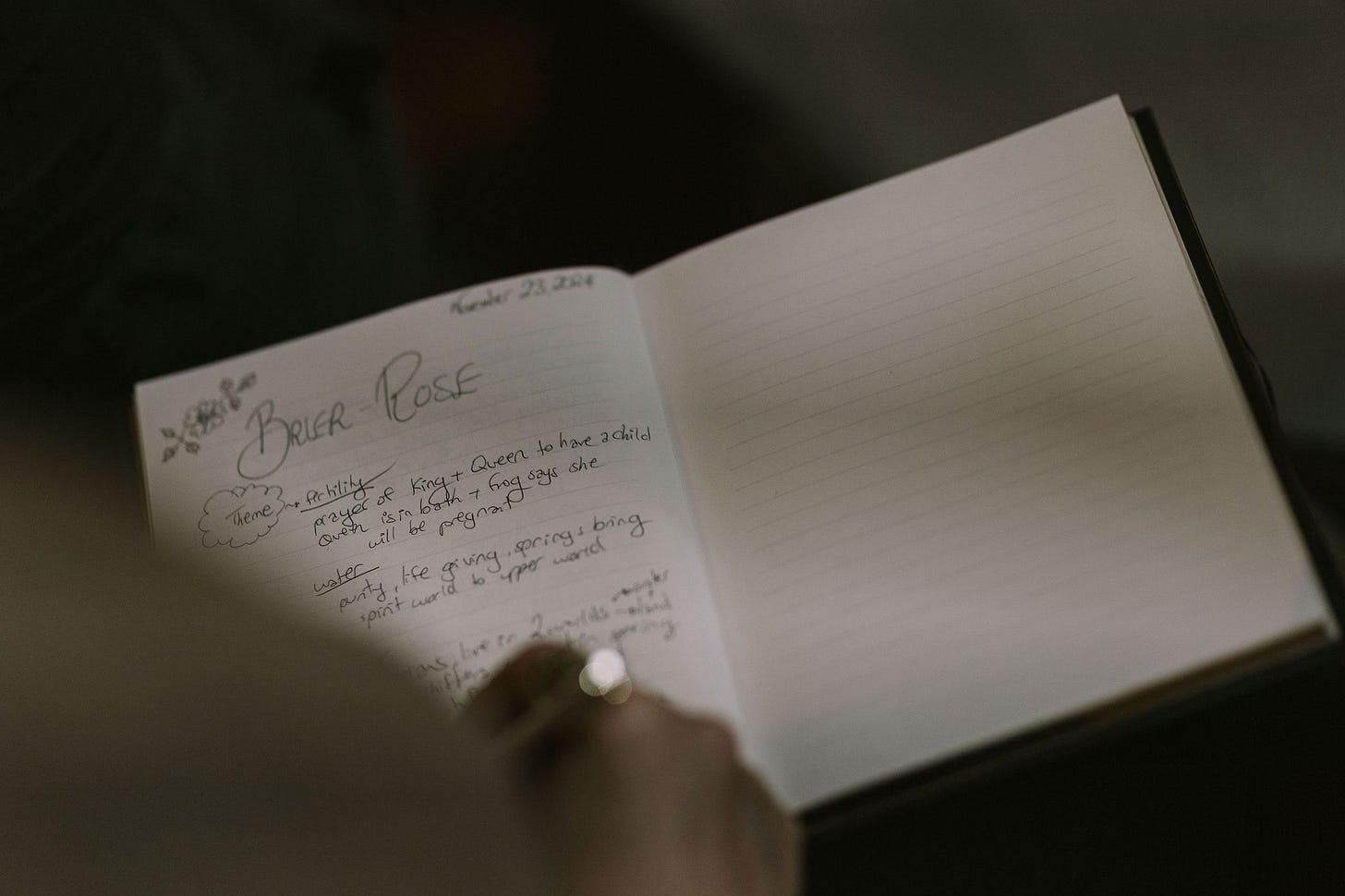
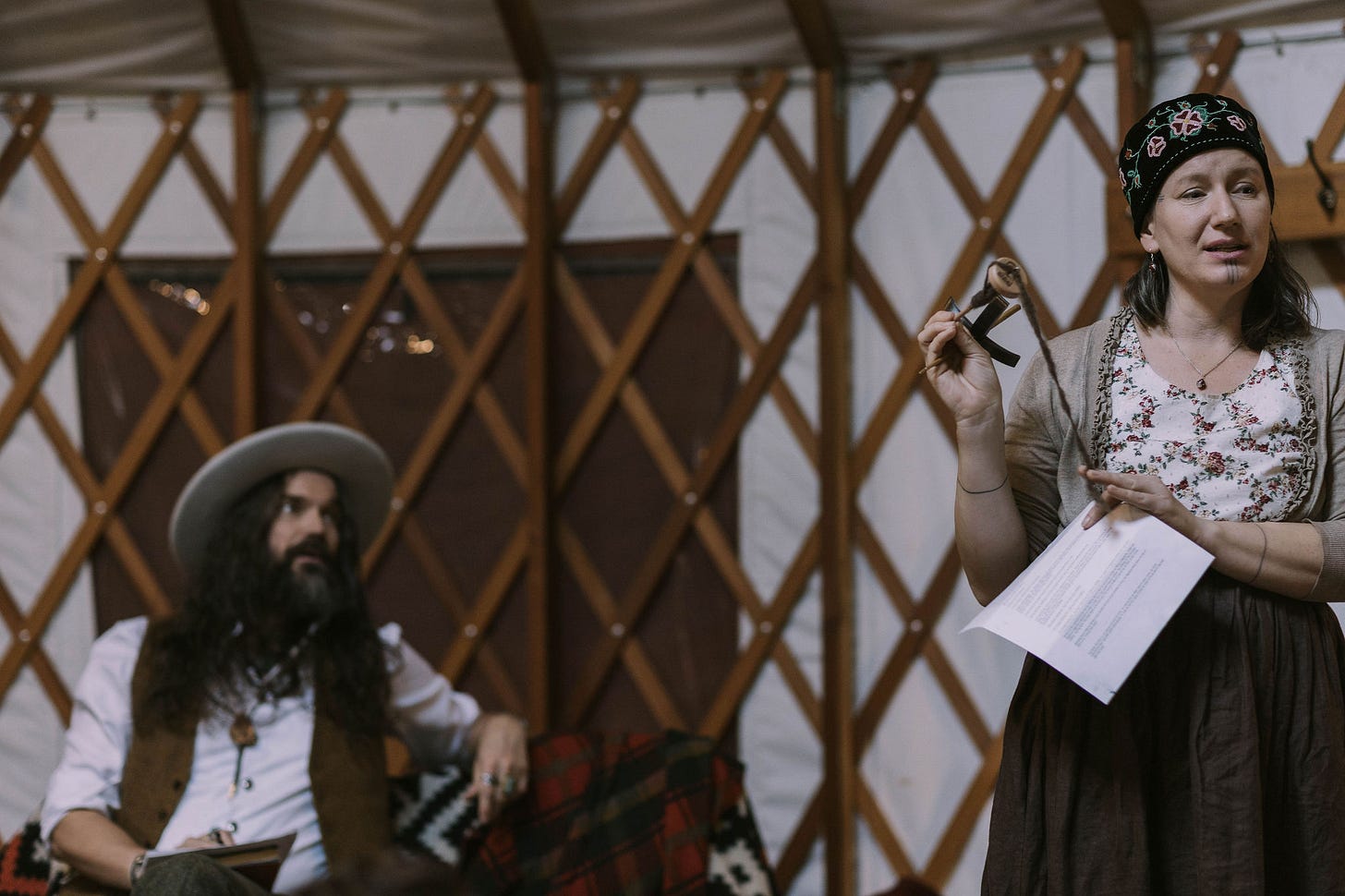

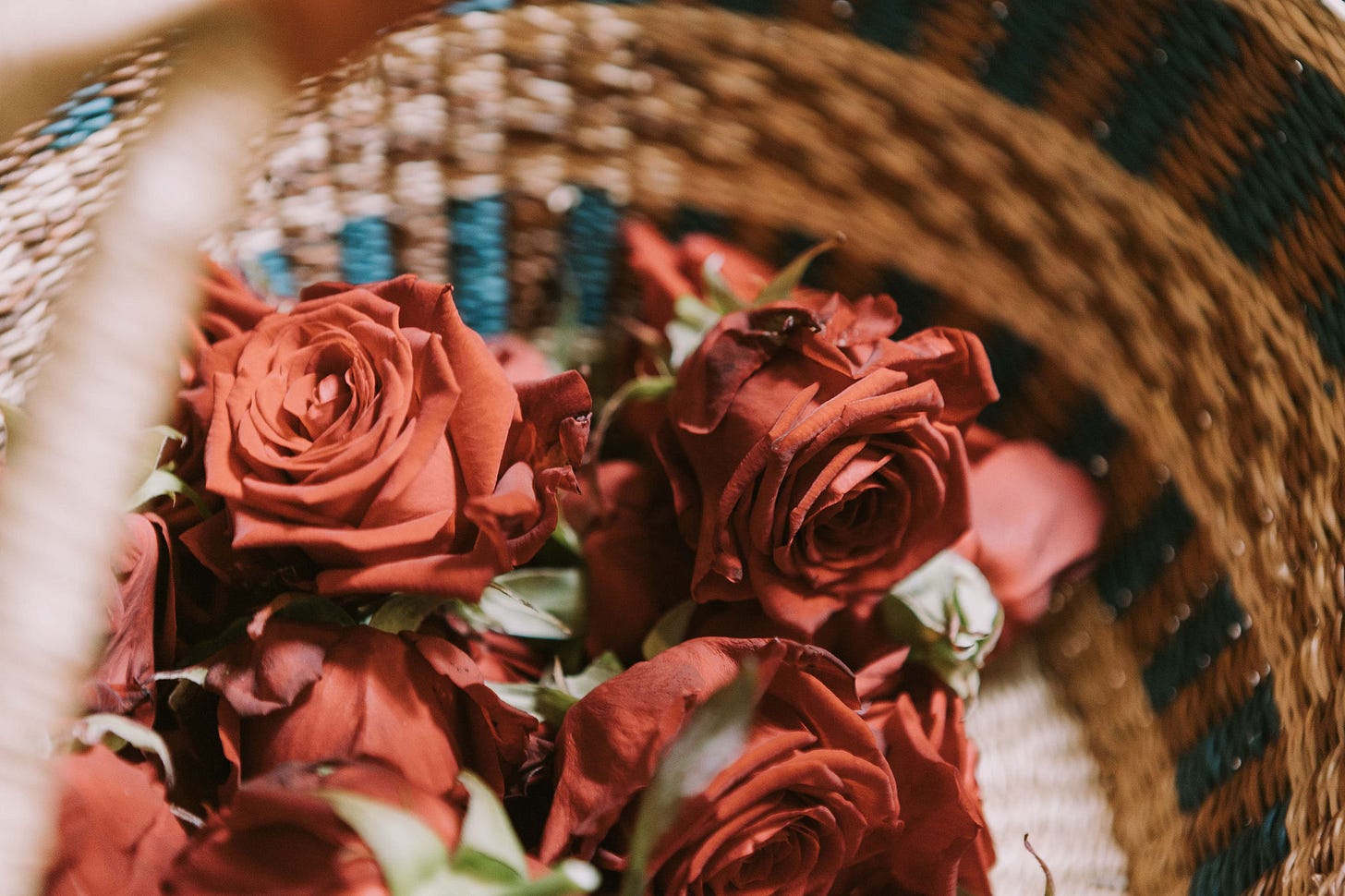
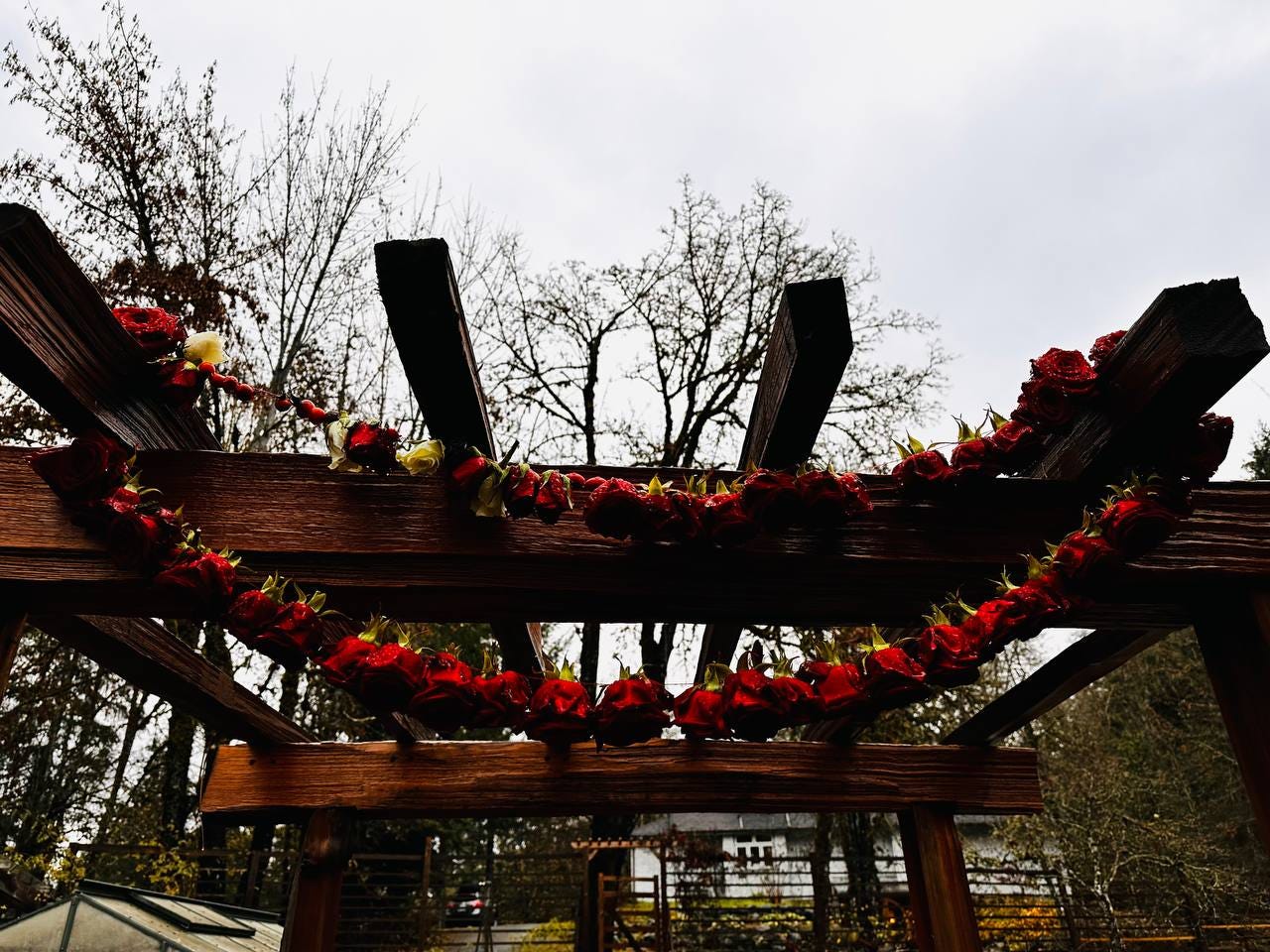
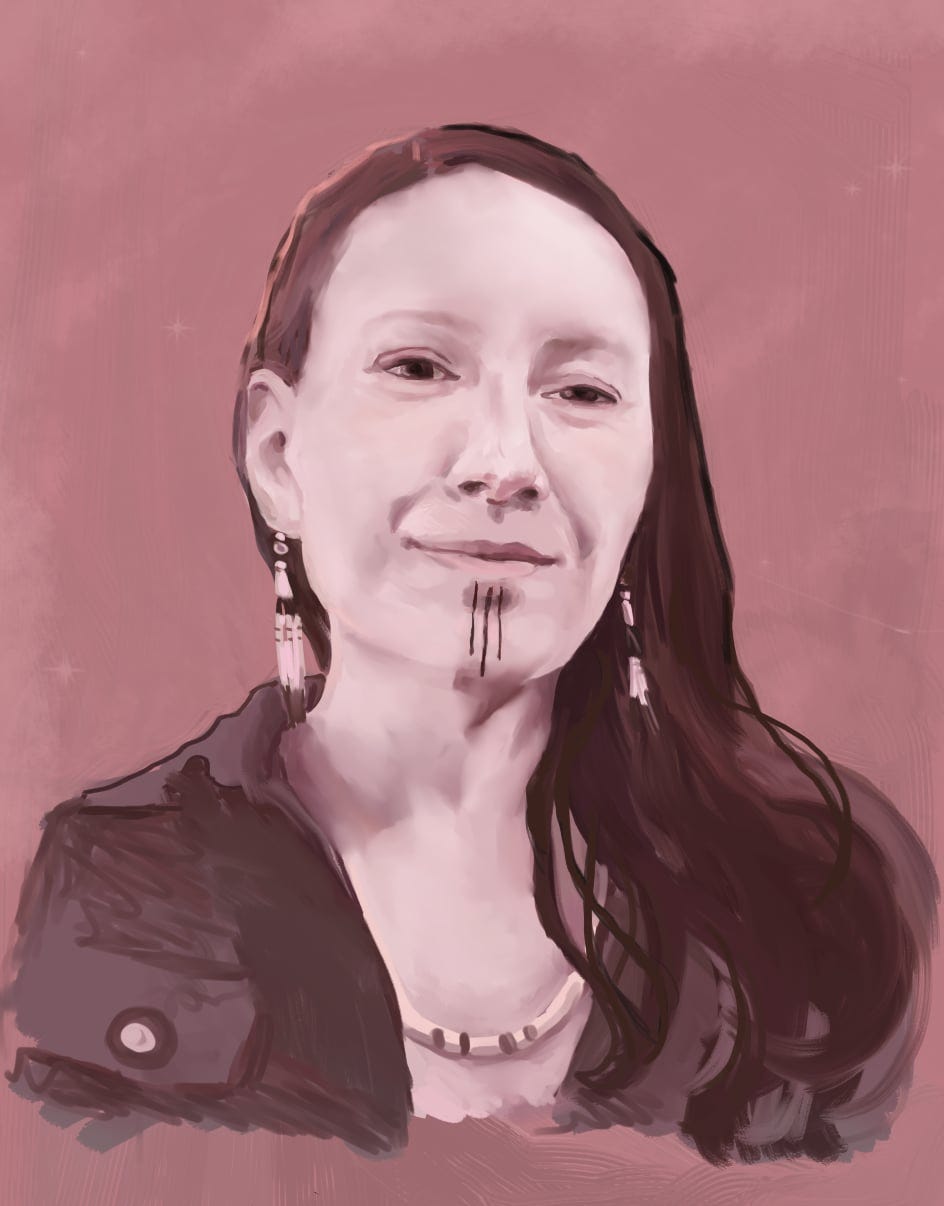

First, thanks for the invitation of sharing our thoughts about this old story. I had lots of fun writing this. I loved reading fairy tales, myths and legends when I was a kid, and this exercice allow me to reconnect with some feelings I had not feel since I was a child.
Second, I am French speaking so I am not sure I can express correctly all I want to share here, but I’ll try my best.
Here are the thoughts that rise in me when I read that story.
**About the King’s and Queen’s screaming desire to have a child** : There are big risks in wanting to control everything, especially big powerful things like the birth of a living being. Despite «having everything you want», nobody deserves to control everything in their life. We must be careful about what we pray for.
**About the frog in the Queen’s bath** : I think this frog or toad persona is one of the archetypes that strikes my child’s soul the most when I was reading old stories as a young girl. I could not tell the exact titles of the other stories this frog/toad is in, but I remember it was in a lot of them. They gave me a weird sensual pleasure. I was in complete awe of nature when I was a kid, meaning it represented lots of wonders but also lots of fears to me. And imagining a talking frog/toad would appear in my bath was the perfect incarnation of all these mixed feelings. So, to me, in this story, the frog represents kind of a small devil with who the Queen is ready to make a pact to get what she thinks she knows she wants and deserves.
**About the 13th wise woman** : Maybe if the King also had to interact with a speaking frog in his bath in order to get the child he wants, he would have been better prepared to let go of all you need to let go of when you become a parent. Here, he decided that 12 was the exact number of wise women he should invite, no matter what. He decided to simply stick to his perfect plan. But there is simply no way you can protect yourself from the trials of life. They are woven into the fabric of life on Earth. There is no plan perfect enough to put them aside from somebody’s life. There are not even bad in essence, they teach us wiseness. Here, the King doesn’t learn his lesson from the 13th wise woman. He simply replied by more illusion of control.
**About the Princess finding the Old Lady** : It strikes me that Brier-Rose is kind of looking for the Old Lady and the spindle. Contrary to her parents, to who life trials seems to be going after, she is looking for them. Teenagers from all times do that : they chase experiences. The King and the Queen seems to think that because they took great care in doing everything possible to keep their prodigy child safe, they can relax, they can count on the fact that she and they are virtuous enough that nothing «bad» will happen to them.
**About the Sleeping** : Sometimes, while chasing experiences and trying things, we get hurt. And sometimes, instead of going through healing, we shut down, or at least some parts of us shut down. It commonly happens to the part of us that was initially able to experience romantic love. For some reasons, maybe because of overprotective parents, because of the common fear of being afraid or because of a really ego or physically frightening event, we freeze. Maybe this is a tale that the growing number of trauma therapists could use.
**About the Thorn Edge** : I was intrigued by this edge since I was a child. I have always been curious to see how beautifully or not it would be represented in books or movies. I often wished that the Prince would spend more time in it, so that the authors would have to spend word describing it. Which plant was it made of? Was it just one or more species? Was it there to protect the Princess and her princessdom or was it detrimental to her? Now I know this magic Thorn Edge is not more precisely described because in real life it can take so many forms. It represents the barriers we erect around us, around the frightened parts of us. This Edge is actually fabulously protective and enormously harmful, for us and for those trying to cross it.
***The hundred years had just passed, and the day had come when Little Brier-Rose was to awaken*** : This is the part I didn’t remember or I never knew. In my memories, in my romantic fantasy, in my naive ideals, the Prince was able to see through and go through the barriers surrounding the Princess despite she having to show any sign of being ready for this invasion. But it seems here that the Prince is not awakening Sleeping Beauty. She simply reached the moment she is ready to live again. And he, contrary to the King, is ready to embrace all that a life with the Princess will be bringing is in his life: the thorns and the roses.
**The Wedding**: Like all weddings, life is a story of great joys and great challenges.
To me there's a lot of mystery to this tale... a lot unsaid.
What made this last prince able to penetrate the briar? Was it his luck in terms of timing? His proclamation that he was not afraid? Hmmm...
I wonder how much the retelling of this story must have changed over the generations and hundreds of times it was passed around before it was written down...
I'm gonna chew on this one some more.
Sometimes, such passed on tales hold deeper wisdom and sometimes they simply carry the shadows and wishes of past generations...
And much of it serves as a Rhoscharch test... allowing me to project my own meaning on it...
To me, right now, there is something unsettling and almost too easy about the way it is resolved. That simply the young man who wants love and fortune and tells himself to not be afraid will get it... like the lies our culture tells us about "you can be whatever you want to be, if you only work hard enough for it" or that "love is there if you dare to seek it." Why did the other princes fail? I imagine them to be also equally entitled and daring...
Maybe, I am expecting more tension and conflict... and something harder earned and this is a tale inviting surrender and softening... upending expectations and offering love to any and all who seek it...
I'll be sitting with this for a while...